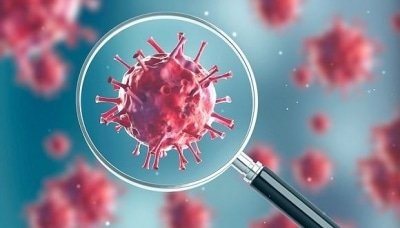New York, July 1 (IANS) A team of US scientists, led by an Indian-origin researcher revealed that SARS-CoV-2 (coronavirus), the virus behind Covid-19, can infect heart cells in a lab dish.
This suggests it may be possible for heart cells in Covid-19 patients to be directly infected by the virus.
The discovery, published today in the journal Cell Reports Medicine, was made using heart muscle cells that were produced by stem cell technology.
“We not only uncovered that these stem cell-derived heart cells are susceptible to infection by a novel coronavirus, but that the virus can also quickly divide within the heart muscle cells,” said study researcher Arun Sharma from the Cedars-Sinai Board of Governors Regenerative Medicine Institute in the US.
“Even more significant, the infected heart cells showed changes in their ability to beat after 72 hours of infection,” Sharma added.Although many COVID-19 patients experience heart problems, the reasons remain unclear. Pre-existing cardiac conditions or inflammation and oxygen deprivation resulting from the infection have all been implicated.
But there has until now been only limited evidence the SARS-CoV-2 virus directly infects the individual muscle cells of the heart.The study also demonstrated human stem cell-derived heart cells infected by SARS-CoV-2 change their gene expression profile.This offers further confirmation the cells can be actively infected by the virus and activate innate cellular ‘defence mechanisms’ in an effort to help clear-out the virus.
“This viral pandemic is predominately defined by respiratory symptoms, but there are also cardiac complications, including arrhythmia, heart failure and viral myocarditis,” said study co-author Clive Svendsen.
“While this could be the result of massive inflammation in response to the virus, our data suggest that the heart could also be directly affected by the virus in Covid-19,” Svendsen added.
Researchers also found that treatment with an ACE2 antibody was able to blunt viral replication on stem cell-derived heart cells, suggesting that the ACE2 receptor could be used by SARS-CoV-2 to enter human heart muscle cells.
“By blocking the ACE2 protein with an antibody, the virus is not as easily able to bind to the ACE2 protein, and thus cannot easily enter the cell,” said Sharma. “This not only helps us understand the mechanisms of how this virus functions, but also suggests therapeutic approaches that could be used as a potential treatment for SARS-CoV-2 infection,” he explained.
The study used human induced pluripotent stem cells (iPSCs), a type of stem cell that is created in the lab from a person’s blood or skin cells. IPSCs can make any cell type found in the body, each one carrying the DNA of the individual. “This work illustrates the power of being able to study human tissue in a dish,” the authors wrote.
–IANS
bu/pgh
